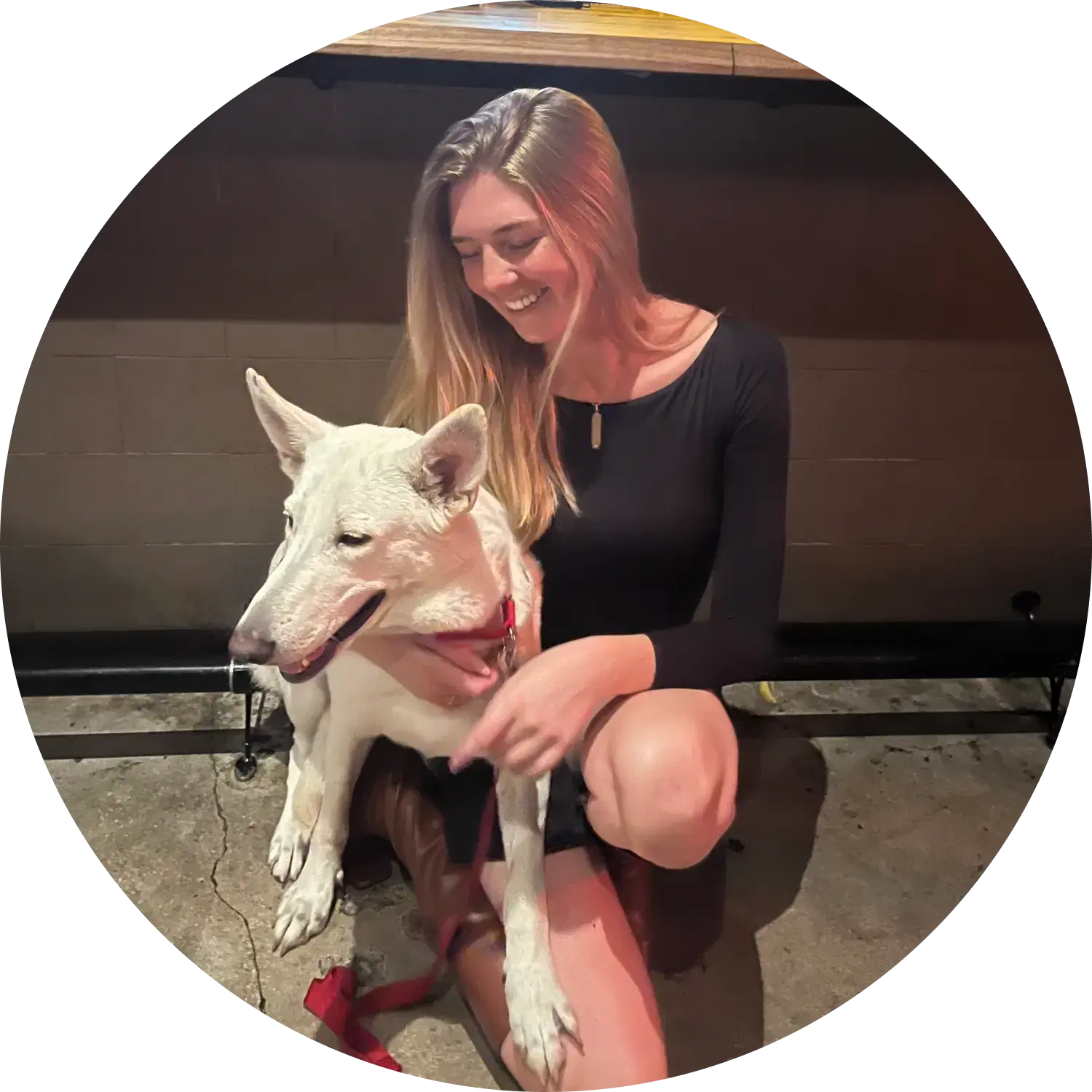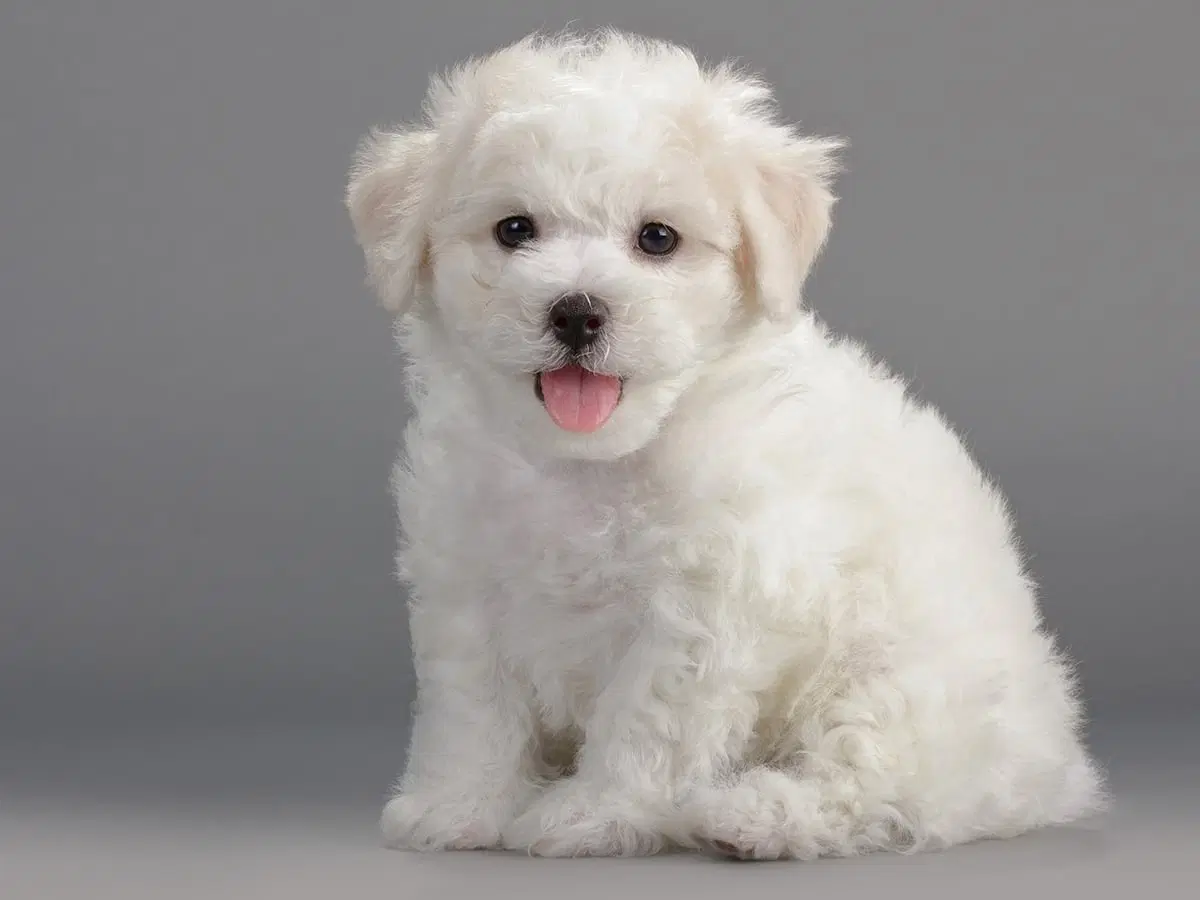Bichon Frise Characteristics
Life expectancy: 12 – 15 years
Adult weight: 14 – 18 lbs.
Adult height: 10 – 14 in.
Origin – France
What is the difference between a soft toy and a Bichon Frise? Well, if it is sleeping then nothing, but if it’s awake, then the only difference is that it can walk and bark. A small-white fur ball, while the Bichon Frise is a toy breed, they are sturdy and resilient dogs, originally from Spain where they were used as sailing dogs. The French later developed it to be more of a lap dog. The Maltese, the Bolognese, and the Havanese are all similar to the Bichon Frise but are treated as four separate breeds. They have been a very popular breed for ages because of their pretty disposition and great personality.
Temperament-wise, they are merry and curious dogs, with their name in the list of ‘dogs with best personalities.’ Appearance-wise, most of them are super hairy. Some can be a little less hairy as well. Pure white is the only color in which these dogs are available. Big round marble-like eyes on a pure white coat are what make them look like soft toys.
What is the price of a Bichon Frise?
Many factors are involved in determining the price, including age, appearance, health documents, breeder’s accreditation, size, gender, training, and more. We will break down the price by categorizing it by initial buying/adoption costs, vaccinations, diets, healthcare, grooming, and miscellaneous expenses. According to the OVMA and Rates, here are the average costs of puppy ownership in Canada.
Buying: $1200 – $3,500
The rarity of this breed can influence the buying price along with the reputation of the breeder and the quality of the puppy. The average cost of a Bichon Frise could be around $1200-$3,500. This price can be higher depending on the breeder.
If you are looking for a more affordable option, adoption is a good choice for you. There are plenty of trusted platforms online that can help you adopt a Bichon Frise. The cost for adoption could be around $300 which is usually for covering the expenses of caring for the dog before adoption. This is a great option, and you can also feel good providing a puppy with a new home. Adopt-a-pet is one platform among many others you can find online that can help you find an adoptable pet.
Monthly costs for a Bichon Frise
Diets: $20-$85
One benefit of owning a small dog is that most of them don’t require much food for their daily energy needs. But that doesn’t mean that you compromise on the quality of the diet. High-quality vet-recommended kibble to be fed in small portions rather than 1 big meal is advised. The cost could be around $20-$85 per month. One more caution to be kept when dealing with these Bichons is that they can be prone to obesity. So strictly avoid overfeeding and fatty-oily human foods.
Grooming: $50-$70
Due to their furry coats, brushing them 2-3 times and bathing them once or twice a month is recommended. Owners should also maintain a daily grooming schedule. You can do the grooming at home or take the dog to a professional groomer once a month to get a complete “spa day” for your dog, including teeth, nails, and coat. The cost of this could be around $50-$70 per session.
Medical Costs: $400-$700
During the first years, it is recommended you take your pet to the vet about 3-4 times annually. Vet fees can range from $100 to $300, and could include things like annual wellness exams and blood tests among other recommended preventive care treatments. Other examinations and tests could cost you another $300-$400.
One-time costs for a Bichon Frise
Initial Costs: $400
If this is your first dog, there may be several things that you will have to set up in the house before getting one. These costs could include a bed, toys, ID tag, crate, carrier, food and water bowls, brushes, nail clippers, etc. These expenses occur irrespective of the breed of the dog. Altogether, the cost could be around $350-$400.
Vaccinations: $250-$300
There are certain core vaccinations that a Bichon Frise would need. These include distemper, parvovirus, Adenovirus, type 1, Adenovirus, type 2, and rabies. All of these could cost you around $150-$200.
There are certain non-core vaccinations as well that are recommended by most vets for a Bichon Frise. These include parainfluenza, Lyme disease, and leptospirosis. The cost of these vaccines can be around $130-$150.
Microchipping: $60-$70
Microchipping costs can vary, but the average cost is around $50. Along with a dog license, it could cost an additional 10-20 bucks. Spot Pet Insurance strongly recommends that every pet parent get their pets microchipped to help increase the chances of finding them if they get lost.
Miscellaneous: $80-$100
Apart from these expenses above, there could be some other miscellaneous costs like dog clothes, urine cleaner, poop scooper, poop bags, dog walking/sitting, etc. These could cost you around another $100, depending on the quality of the things you purchase.
Lifetime Bichon Frise Price
These small, little fur-balls are typically low maintenance and have basic grooming requirements. If we calculate the monthly cost of $500-$600 for an average lifetime of 15 years + initial adoption cost of $1500-$2000, the overall lifetime cost of adopting, maintaining, and caring for a Bichon Frise could be around $9,000-$10,000.
Conclusion
As a dog breed Bichon Frise are gently mannered, sensitive, playful, and affectionate. Spending a couple of grand on them can be worth the cost for a loving, playful, joyous, and beautiful companionship over their lifetime. The health costs can be big at times, but with a Spot plan, you can worry less knowing you and your furry friend have help covering those eligible vet bills!
Happy Parenting to you, and Lots of Love to your Pup!

The resident animal enthusiast at Spot. I have a lifetime of pet parent experience. If it has fur, feathers, or scales, I’ve probably shared my home with it. I aim to be a reliable source, blending experience with a dedication to the well-being of pets.
“Annual Cost of Owning a Puppy,” OVMA, https://www.ovma.org/assets/1/6/CostOfCare%20PuppyDog%202022.pdf, n.d.
“The Cost of Owning a Pet in Canada,” Rates, https://rates.ca/resources/the-cost-of-owning-a-pet-in-canada, n.d.












